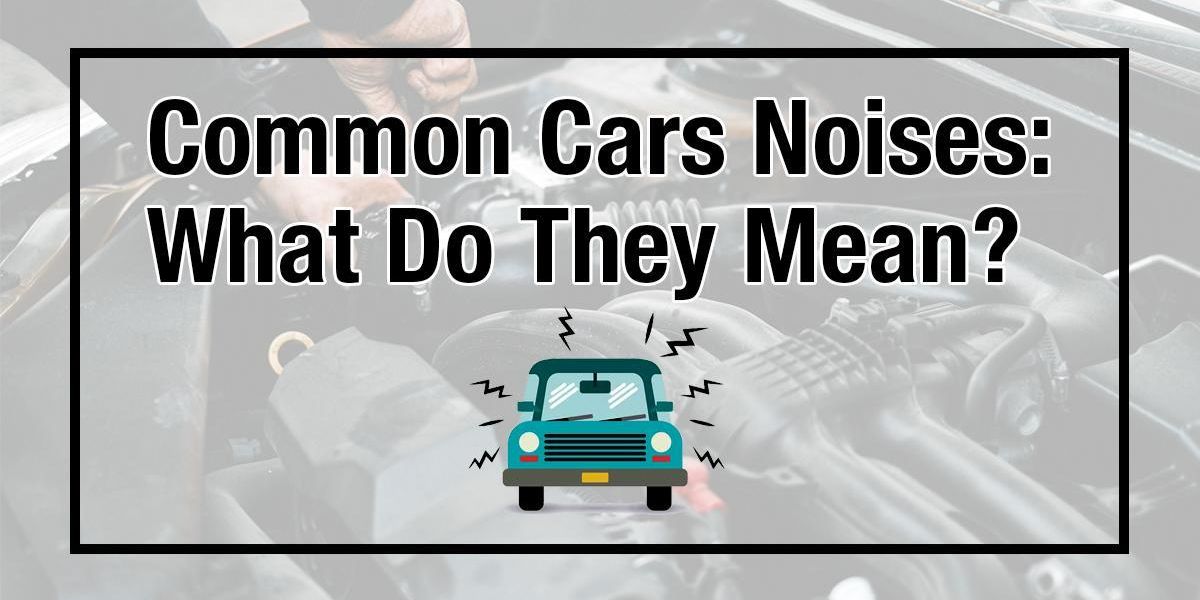Did you know that strange but familiar car noises can cause car damage? Most car owners do not take these car noises seriously with the hopes that they will go away. I hate to break it to you all, but no, the noises are not going away on their own.
Strange car noises come in different forms. They are usually loud enough for you to hear. It can be hard to differentiate between various car noises such as clunking and grinding. The trick is to focus on the area from which the noises are coming.
Mechanical issues that cause these regular car noises are usually predictable and easy to fix. With that said, let's look at these everyday noises, how they can get identified, their causes, and how to get rid of them.
11 weird and scary car noises you should never ignore
1. Clunking and grinding when applying the brake
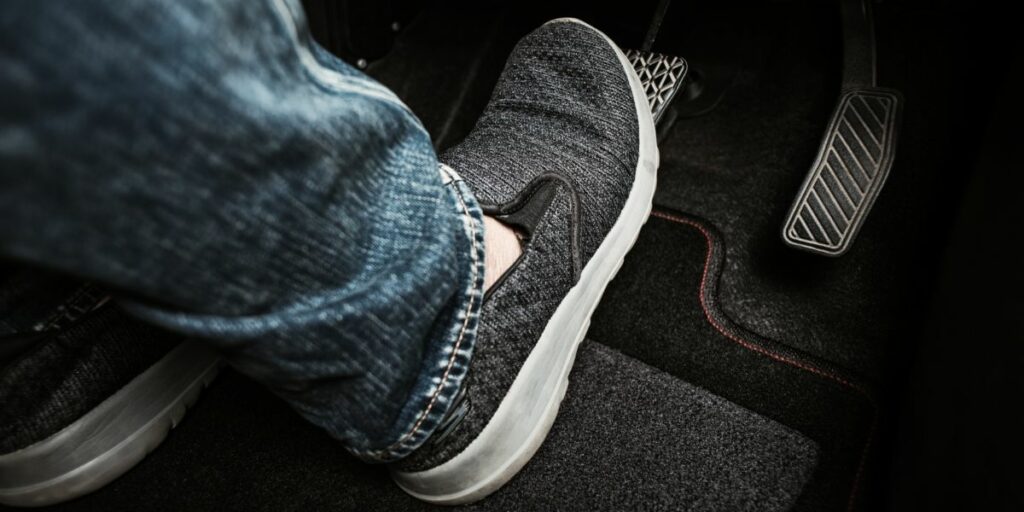
Brakes are one of the most critical systems in your car. Clunking noise from the brake area can quickly turn into a grinding noise of not attending to in time. The clunking noise when applying brakes usually signifies the accumulation of dirt and debris on the brake pads. You will notice this sound prevalently if you tend to drive your vehicle through muddy or dusty terrains.
It is advisable to make sure that your vehicle is cleaned and dusted down as frequently as possible. Dirt and debris on the wheels, if left unaddressed, will turn the clunking into grinding noises. Therefore, when the grinding noises start, you should probably know that the brake pads are getting worn out.
You should never drive a vehicle that has worn-down brake pads. The faulty brake pads usually lead to the metallic material brushing against other elements in the braking system. Over time, the brushing effect will lead to the damage of the brake rotors and the braking system elements as a whole.
Do not attempt to fix this car noise by yourself. The braking system is crucial; any mistake can lead to scary and dangerous outcomes. Visit your local mechanic shop as soon as possible to prevent the metal-on-metal action from damaging your discs.
2. Grinding or whirring from the gearbox
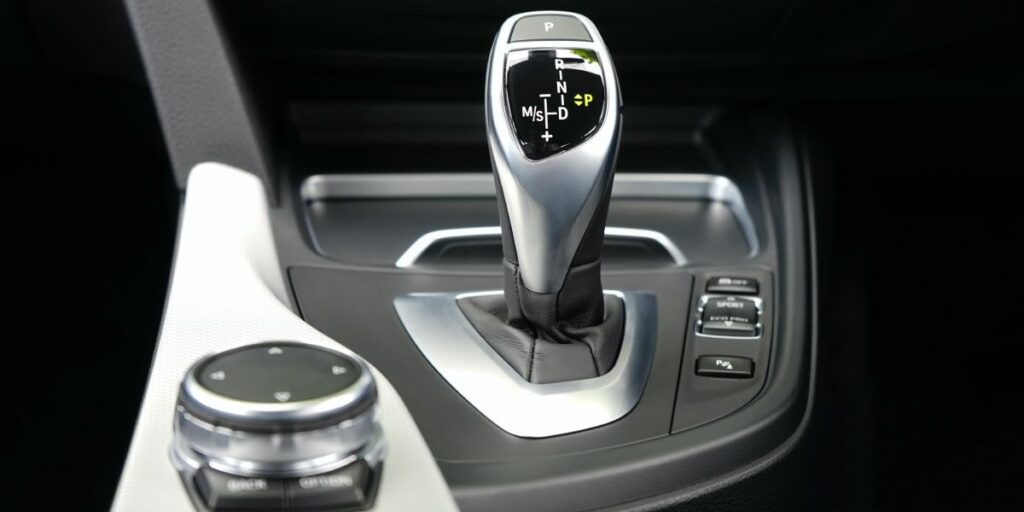
Your car's gearbox can exhibit grinding or whirring noises to show you a mechanical issue in the system. The grinding noises are usually common for manual transmission vehicles that have clutches and clutch thrust bearings. However, the problem is not just limited to the clutch system. The noise can also be due to faults in the gears and shafts inside the gearbox.
A typical cause of this problem is the low transmission fluid level. This can cause the metallic elements to whirr and eventually grind if the low oil issue is not resolved. The grinding noises can also indicate faults in the wheel bearing or CV joint.
3. Hissing under car hood
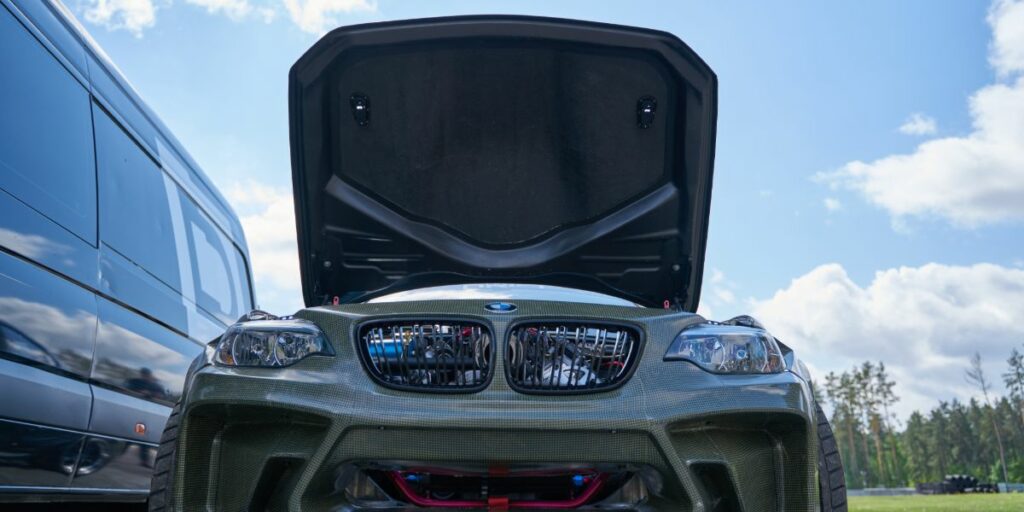
A hissing noise under the hood is one of the most dangerous and most scary noises that your car could ever produce. The hissing noises, explicitly coming from under the bonnet, point to oil leaks, fluid leaks, or vacuum leaks. Oil, fluid, and vacuum leaks are hazardous, not only to the environment but also to you as the driver. So make sure to check your car’s oils and fluids regularly for safety and best performance.
The hissing noise will most likely signify fluid leaking into hot components in the engine, such as the exhaust manifold or engine block. The noise can only indicate a vacuum leak if it happens when you accelerate.
4. Chirping or squealing under the bonnet
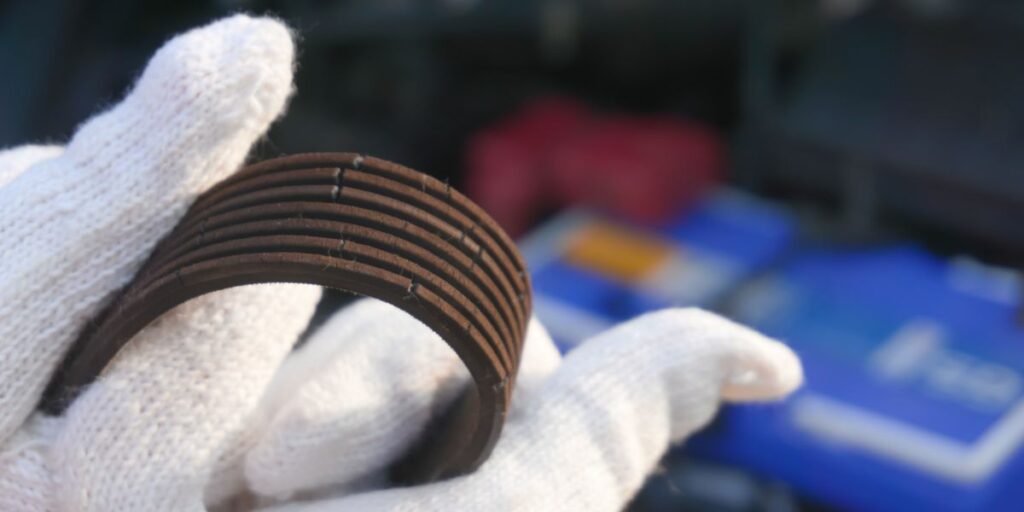
This is by far the most straightforward car noise to fix. A top-notch professional mechanic can get rid of these noises in just a few minutes. The noises are associated with the belts, which drive assemblies like the power steering and air conditioning system.
If the belts that drive these systems slip on a pulley, then you will hear a chirping sound under the hood. I know you don’t want your belt to slip or break. If you have no fixing experience or spare parts, you may end up stranded in the middle of nowhere.
Please pay attention to the squeal under the hood, especially during acceleration, since it will be the clear indicator of a problem with your belt.
5. Whistling under car hood
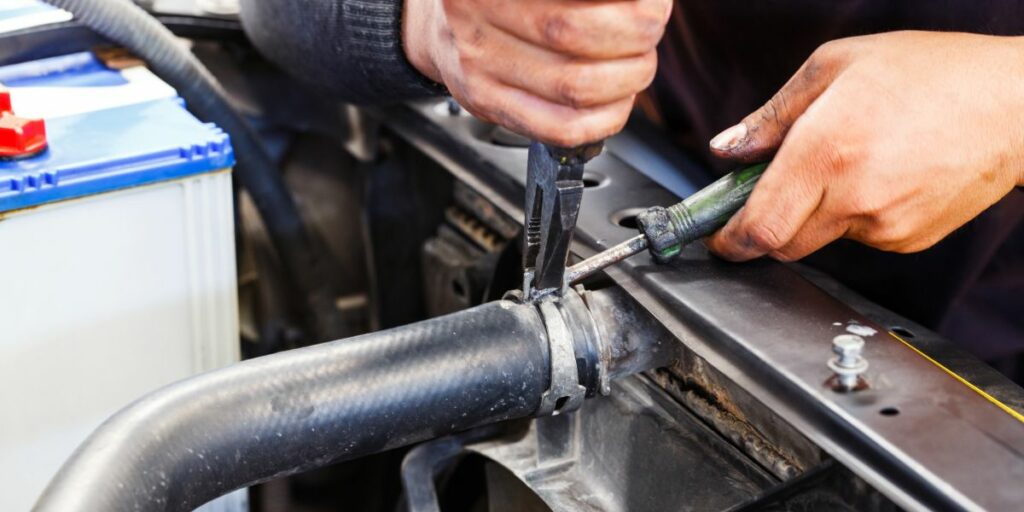
A whistling under the hood can be a symptom of something serious. The hissing noises from the car hood discussed earlier can occur in combination with this whistling noise. That is the case if the scary noises are a result of vacuum leaks.
The hoses that facilitate the circulation of air and fluid in the engine are essential. However, they are fragile components. These hoses can crack or break, creating a vacuum leak that causes the whistling noise, sometimes together with a hissing sound.
Another cause of the whistling noise may lay in your radiator pressure cap. That is more likely the case if the noise gets heard when the engine is off. The gasket that seals the radiator cap can sometimes break, allowing for air leaks. Eventually, the damaged pressure cap will fail to release extra heat from the coolants, causing overheating issues.
6. Rattling underneath
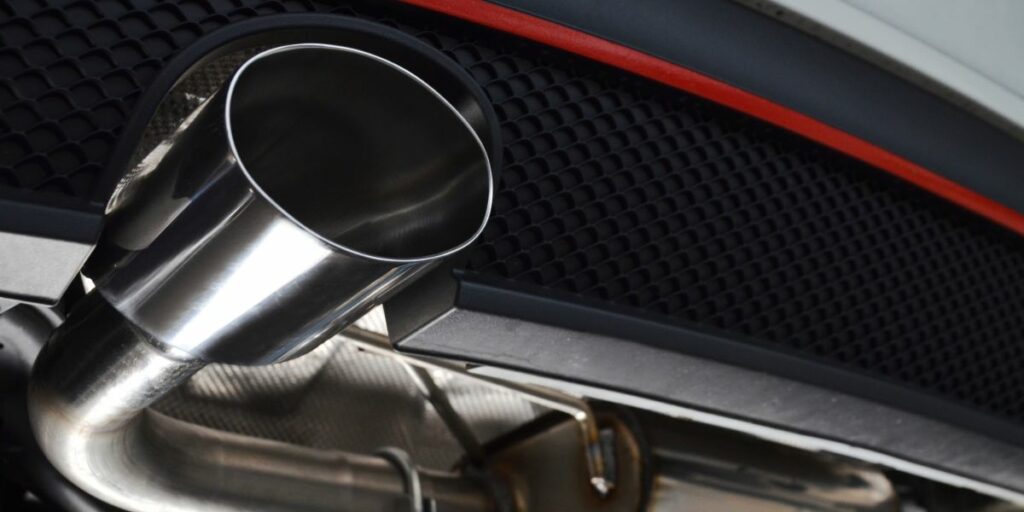
Rattles underneath your vehicle usually indicate loose brake pads or a loose exhaust system. In the case of a loose exhaust system, the rattles will sound like a container of stones being shaken. The exact locations of the problem lie in the catalytic converter. It can get loose or damaged by rust, corrosion, and sometimes by rocks when running. Another cause can be an open exhaust system clamp.
It would be best if you carefully differentiate between a rattling noise underneath your car and one that you hear from the inside. Rattles in your vehicle are due to worn-down bushes, corroded shock absorbers, or the suspension system as a whole.
7. Squeaking when turning wheel
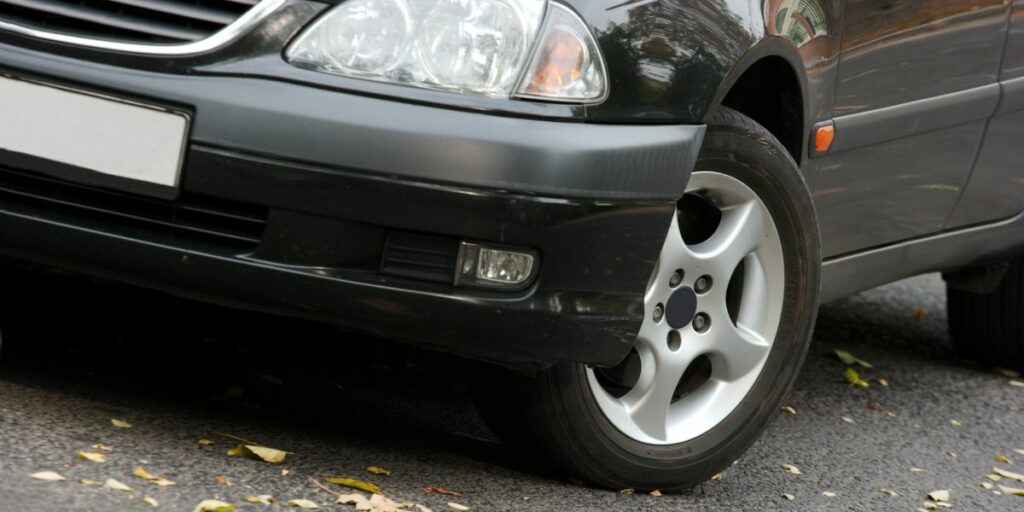
A squeaking sound when turning the wheel can point to a minor problem such as low lubrication in your suspension system. It can also signify major problems such as failing struts, tie rod damage, or power steering rack damage.
The squeaks are due to mechanical issues in several parts: axle shaft, U-joints, CV joints, and driveshaft. However, the mechanical faults are not limited to these parts. Chassis parts such as the suspension system and shock absorbers can also lead to a squeaking sound.
The causes for this annoying noise can range from minor issues like low power steering fluid to major faults like a worn-out steering wheel. Other causes include a bad CV joint, friction in the steering wheel, steering column problems, and loose interior and exterior trims. Bad ball joints can also be the cause if the noise originates from the car’s wheels.
Steering wheel issues need to be fixed as soon as possible. Make sure to visit your nearest mechanic shop if you experience any squeaking noises when turning the wheel. As much as you can diagnose and fix some of these issues by yourself, it is recommended to leave it to a professional.
8. Flapping from AC
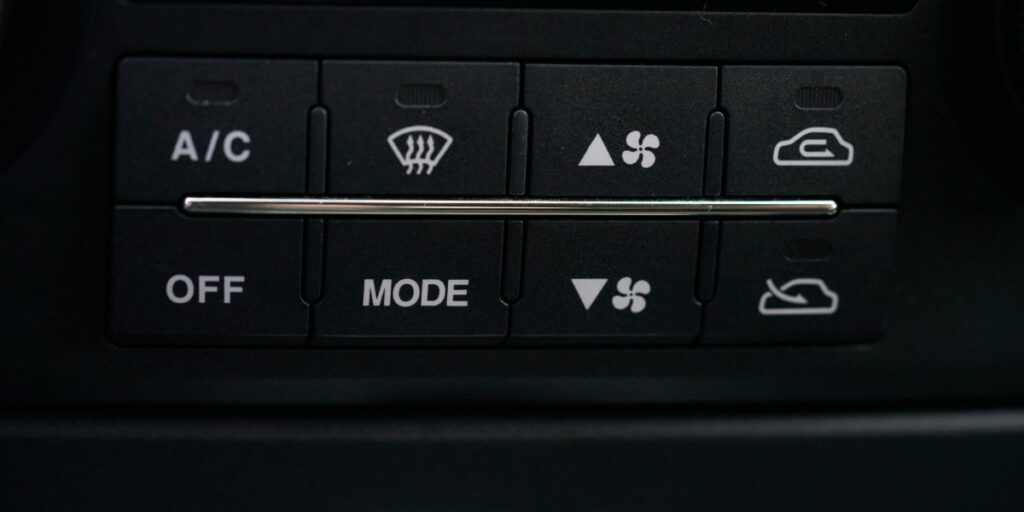
Flapping in the air conditioning system is caused by dirt and debris accumulated between the blades of the fan blower. A small amount of dirt will occasionally not cause any concerns or issues. However, if left unchecked, the blades can bend or get loose, making contact with other blades when in operation. The result of this is the flapping noises.
The flapping noises will sound like a deck of cards being shuffled. You should fix this issue quickly to avoid replacing the entire fan motor.
9. Roaring when accelerating
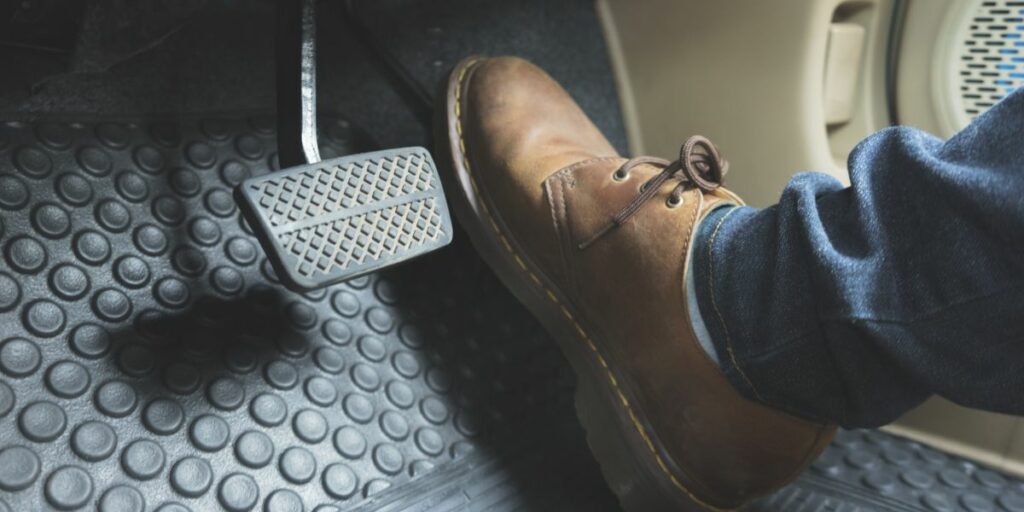
A roaring noise when you accelerate will point to the exhaust and transmission system. The roaring sound in the transmission system can be caused by not proceeding to the nest gear in an automatic car. For a manual transmission system, the roaring noises in the gearbox can result from a clutch that does not engage properly.
To diagnose a roaring noise when accelerating, you will need to test your car health with a diagnostic tool to see if the problem lies in the exhaust system or transmission. Rev the engine by pressing on the accelerator when you are parked. Pay attention to the noise and notice if you hear it when the vehicle is parked, when it is accelerating, or both.
In the case that the noise happens only during acceleration then the issue lies in the transmission system. Otherwise, the exhaust system has malfunctions. Both of these issues are complex to fix and thus require a professional technician.
10. Thudding noise from tires
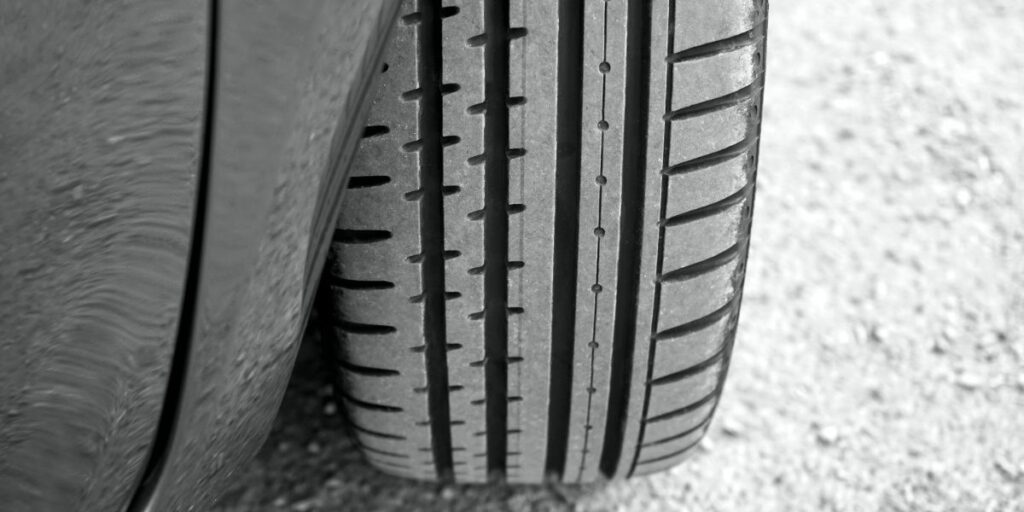
The cause for a thudding noise from the tires, especially when driving on even and smooth terrains, is the low air pressure in your tires. It could also be due to poor wheel alignment. The result of these two causes is a bumpy ride regardless of the road surface.
Over time, the effects of the thudding noise from the tire will shorten your tire’s lifespan and cause terrible gas mileage. The best way to diagnose the condition of the tires is to drive the vehicle at 2-3 miles per hour and then instantly let go of the steering wheel. If the tires are terribly worn out then the steering wheel will rock back and forth.
You can also visually inspect the tires for signs of wear or refer to the age of the tire. Every tire has an indication or label on it that can show you after how long it needs to be replaced. A tire that is above 10 years old will definitely need a replacement.
11. Clicking noise and your car doesn't start
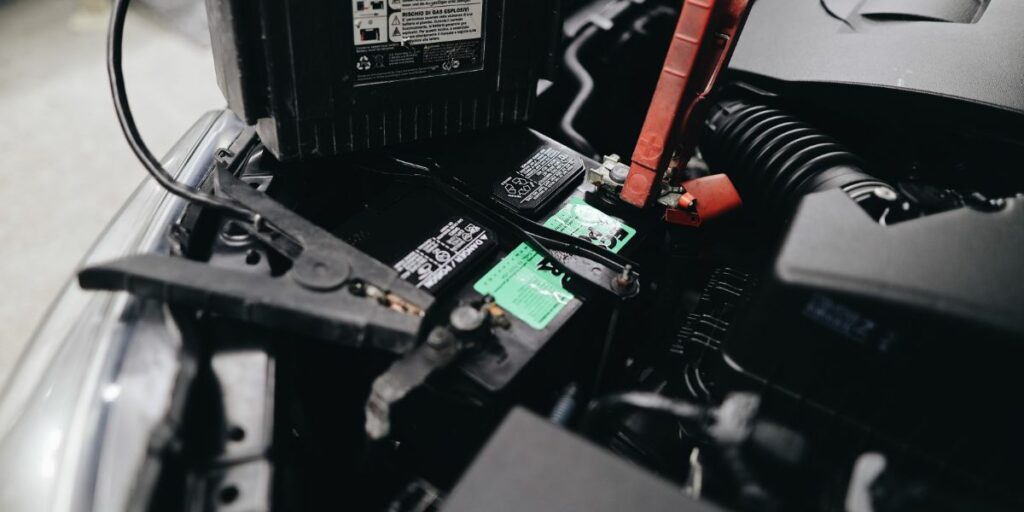
Your car may fail to start while exhibiting clicking noises as you try to turn on the ignition. The causes for this issue can be multiple, with the noise changing from rapid-clicking to single-clicking. The usual culprit is the battery which may have low voltage or higher resistance than is recommended.
Other causes may lie in the electrical system components like the alternator. Moreover, a damaged or locked-up engine can also cause clicks and failure to start. The locking effect happens if your crankshaft cannot turn on the bearings due to overheating and fusion of engine elements.
Final Thoughts
The everyday car noises mentioned above may not be all the noises that mechanical issues can cause in your car. Regardless of the noise, it would help if you were on constant watch to fix it immediately.
By being vigilant, you will not only save yourself a lot of repair costs but also your life. It is hard to determine what will happen if these issues are left unattended for long durations. A simple squeal can cause the engine to overheat, the same way a grinding noise may cause your wheels to fall off.
